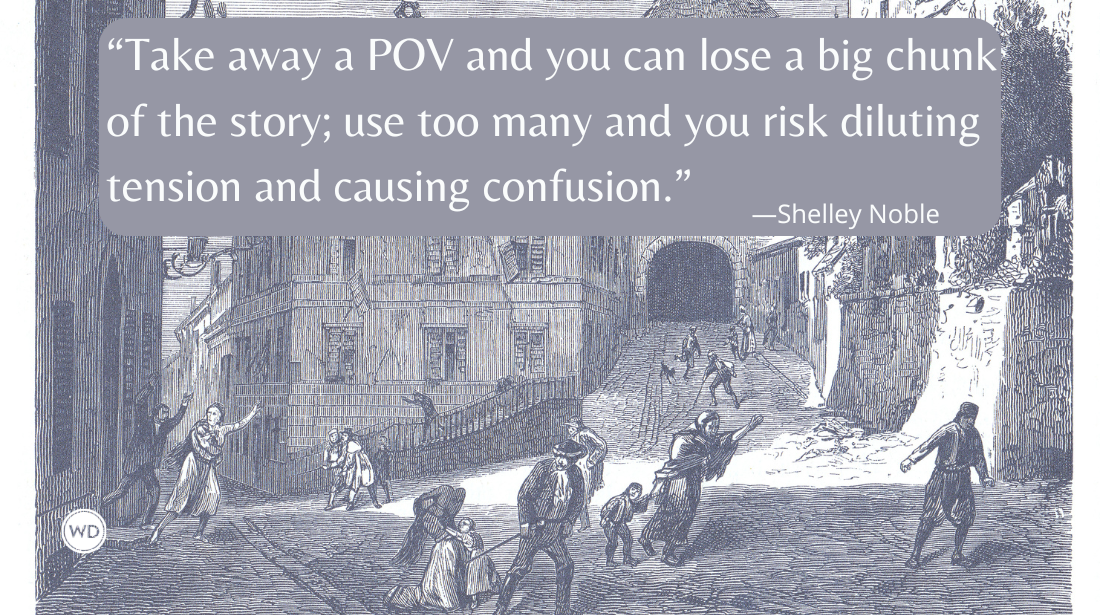How to Add Another Level to Your Novel with Footnotes
Footnotes seem to be a rather polarizing topic among the literary community, so let’s talk about them—and what benefits exist.
The last developmental note I received from my publisher read: “Your book will live or die by its footnotes.” Since I’m a glass-half-full guy, I decided that was a commendation rather than a warning. “What made you decide to pepper so many footnotes through your novel?” is usually the first question I get from any fellow author who’s read my book. Some ask it joyfully, others scornfully. Footnotes seem to be a rather polarizing topic among the literary community, so I thought this might be a good forum through which to briefly share my thoughts on the subject.
Order a copy of Tal M. Klein's The Punch Escrow.
Bookshop | Amazon
[WD uses affiliate links.]
Footnotes Are Literary Metadata
I believe it was Luther Ingram who famously sang,
If footnotes are wrong I don't wanna be right
If writing footnotes means not being an author
I'd rather live a footnote writing life
Okay, I may have embellished those lyrics, but you get the gist. I believe we’re firmly in the midst of the literary “meta” age. Modern readers are used to getting additional context from everything they read, whether it’s by hovering their mouse over highlighted text, clicking on a link, or popping open a new tab and googling the lyrics to (If Loving You Is Wrong) I Don't Want to Be Right in order to leave a snarky comment like, “Actually, Luther Ingram was the singer, the lyrics to the song you foolishly parodied were written by Homer Banks, Carl Mitchell Hampton, Raymond E. Jackson, Lawrence Krisna Parker, and Sonya Spikes!” To which the author might double down and respond with, “I said ‘sang’ not ‘wrote’—did you even read what I wrote before you went in search of the lyrics to support your snarky comment!” And just like that this post would take on a second narrative only loosely connected to its original topic in the comments beneath it.
The New Footnote: Not Your Grandma’s Footnote
That is the art of writing in the literary meta age. The authors who paved the way here—Terry Pratchett comes to mind—have long ago ushered in the notion of using footnotes as a mechanism for breaking the fourth wall. Sometimes footnotes enable the author to provide some additional exposition or opinion and, on occasion, tell a completely different story orbiting the narrative. In books like J.J. Abrams and Doug Dorst’s haunting The Ship of Theseus and Robert Hamburger’s hilarious Real Ultimate Power: The Official Ninja Book, the footnotes are elevated to liner notes, ostensibly written by fictional characters who read the book before the reader.
Be Mindful Of Footnote Sprawl
If I were giving out an award for Greatest Abuse of Footnotes in a Novel, the winner would be the ghost of David Foster Wallace’s Infinite Jest. At the onset of the book, footnotes seem to function innocently enough in the traditional style, providing world-building supplementary information. However, as the novel progresses, its footnotes become lengthy and more meandering, until even the footnotes have footnotes. To provide some scale of the enormity of Infinite Jest’s footnotitude, one note alone eats up seven pages of fineprint! That’s like an entire footnote chapter.
Therefore I think it wise to heed my publisher’s caveat. It may be too late for me, but there’s still hope for you! Footnotes aren’t for everybody. As evidenced by some of the more colorful reviews of my book, some readers detest them. They can be distracting and, in some cases, infuriating (the footnotes, not the readers. [Actually, both!]). On the other hand, footnotes can truly make a novel. For example, Josh Bazell’s Beat The Reaper is an exponentially better book owing to its creative use of footnotes as a lens into the protagonist’s inner thoughts.
Footnotes Are Nothing Like Bacon Bits On A Salad
Footnotes: They’re like bacon bits on a salad.
That last part was just to check if you were paying attention. But since you’re here, let’s talk about bacon bits on salads. I like a nice frisée lardon with big chunks of bacon because frankly I just want the bacon, the salad part is just to make me feel better about myself. But my dad always gets a cobb salad with a mild sprinkling of bacon bits because he likes the crunch. What I’m getting at is that being an author is like being a salad chef. You need to understand your audience’s appetite for bacon. I mean footnotes. Wait, what are we talking about again?
Tal M. Klein was born in Israel, grew up in New York, and currently lives in Detroit with his wife and two daughters. When his daughter Iris was five years old, she wrote a book called I’m a Bunch of Dinosaurs that went on to become one of the most successful children’s book projects on Kickstarter —something that Tal explained to Iris by telling her, “your book made lots of kids happy.” Iris then asked Tal, "Daddy, why don’t you write book that makes lots of grownups happy?" Tal mulled this over for a few years, and eventually wrote his first book, The Punch Escrow. It won the Inkshares Geek & Sundry Hard Science Fiction Publishing contest, and will be the first book published on Inkshares’ Geek & Sundry imprint.









